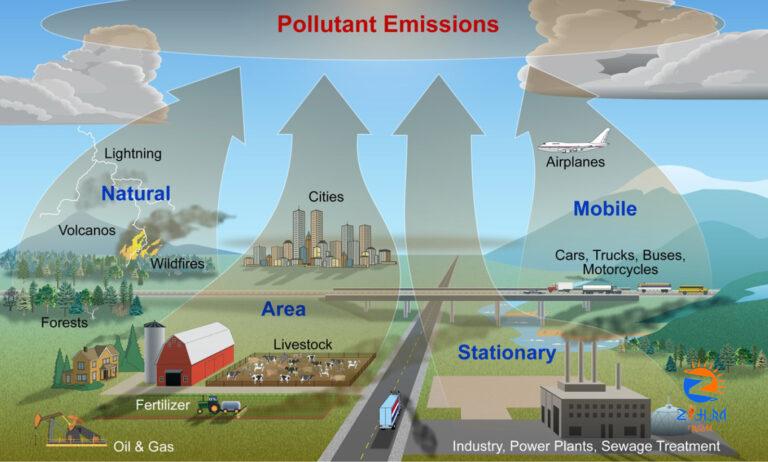
[ad_1]
Have you ever noticed the hazy smog that hangs over cities or the lingering smell of exhaust fumes from traffic? These are just a few noticeable signs of air pollution, a threat that can have a significant effect on our health and well-being.
What is air pollution?
Air pollution is caused when harmful substances are released into the atmosphere. These pollutants can come from both natural and human-made sources. Natural sources include dust, pollen, volcanoes, and wildfires. Human-generated sources include emissions from vehicles, power plants, factories, agriculture, and burning of wood and other fuels.
Where is the air polluted?
Air pollution can occur anywhere, but certain conditions can make it worse. According to the Environmental Protection Agency (EPA), air pollution levels tend to be highest in urban and industrial areas and near busy roads.
While we typically think of air pollution as only an outdoor problem, it’s important to know that indoor air can also be polluted. Indoor air pollution comes from sources such as cooking stoves, fireplaces, and air conditioners. Even household pets can contribute to indoor air pollution when they shed allergens from their skin or hair.
How can polluted air make you sick?
Breathing in polluted air can contribute to health issues, especially in the respiratory system.
In the short term, breathing polluted air can irritate your eyes, nose, and throat. It can cause you to cough, wheeze, or have trouble breathing. It can also make certain health conditions and their symptoms worse.
Over time, exposure to air pollution can even create more severe health problems. These include:
- Respiratory diseases, including asthma and chronic obstructive pulmonary disease (COPD)
- Heart disease and stroke
- Cancer, particularly lung cancer
Researchers studying air pollution continue to learn more about air pollution’s many health effects every day.
Who is at risk?
While air pollution affects people of all ages and backgrounds, certain groups are more vulnerable to its harmful effects. They include:
- Children. Their developing lungs are more susceptible to damage from pollutants.
- Older adults. They are more likely to have preexisting health conditions that can get worse due to air pollution.
- People with asthma and other respiratory problems. Their airways are more sensitive to pollutants, which can trigger symptoms.
- People living in more polluted areas. Those living in urban and industrial areas with high pollution levels are more likely to experience harmful health effects.
How can you protect yourself from air pollution?
Even though it’s impossible to avoid polluted air completely, you can take steps to protect yourself from its harmful effects.
- Stay informed. Check your local air quality index (AQI) regularly. EPA’s AQI tool at AirNow.gov provides current air quality conditions in your area.
- Reduce outdoor exposure. Limit outdoor activities when air pollution levels are high. Try to stay indoors as much as possible. If you need to go outside, plan to do so in the early morning or late evening when levels are typically lower.
- Avoid polluted areas. Stay away from busy roads and highways, especially during rush hour.
- Improve indoor air quality. Ventilate your home, use air purifiers, and choose low-emission cleaning products. Don’t burn candles, incense, or wood indoors, and open your windows when you’re cooking.
- Don’t smoke. Smoking contributes to air pollution and increases your overall risk of health problems.
[ad_2]